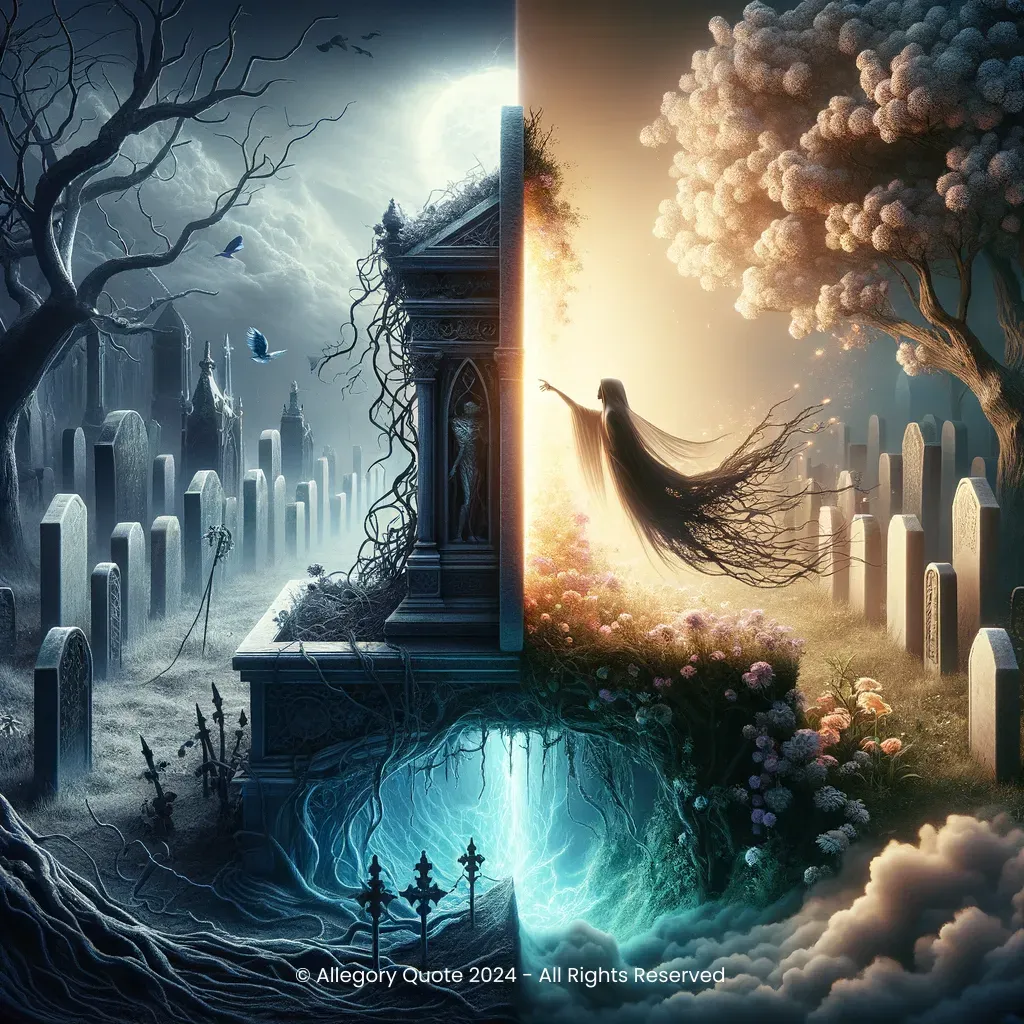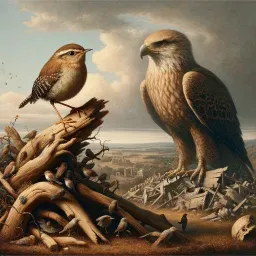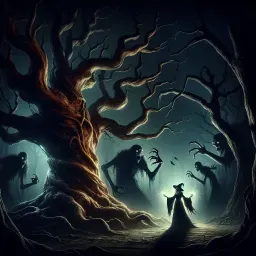”The evil that men do lives after them;
the good is oft interred with their bones“

0
0
0
0
- Meaning
- This phrase suggests that the negative actions of individuals tend to be remembered long after their deaths, while their good deeds are often forgotten or buried with them. It reflects a cynical view of human nature and memory, implying that society is more inclined to recall and emphasize shortcomings and misdeeds rather than virtues and positive actions.
- Allegory
- The elements of the image, such as the timeless tomb and serene graveyard, represent the setting of legacy and remembrance. The split tomb visually conveys the dichotomy between remembered evil and forgotten good. The withered plants and creeping vines emphasize how negative actions persist in memory, while the blooming flowers and vibrant greenery symbolize the often-overlooked positive deeds. The ethereal figure lifting the glowing book signifies the conscious effort to bring balance and recognition to virtuous actions, highlighting the central message of the phrase about the human tendency to emphasize negativity over positivity.
- Applicability
- In personal life, this phrase can serve as a reminder to strive for balance in how we remember and honor people's lives and actions. It encourages us to equally recognize and celebrate the positive contributions of others, rather than focusing disproportionately on their faults or transgressions. On a larger scale, it can motivate individuals to leave a legacy that prioritizes enduring good deeds that will be remembered and valued by future generations.
- Impact
- This phrase has impacted literature and culture by becoming a widely-cited reflection on the human tendency to remember and emphasize negative actions over positive ones. It has been referenced in various works of literature, speeches, and discussions about human nature, morality, and legacy.
- Historical Context
- William Shakespeare's "Julius Caesar" was first performed in 1599. The phrase reflects the themes of legacy, remembrance, and the political dynamics of Rome, resonating with the Elizabethan audience's concerns about power, reputation, and the aftermath of one's actions.
- Criticisms
- Criticisms of this phrase might argue that it presents an overly pessimistic view of human memory and legacy, suggesting that people are inherently inclined to focus on the negative rather than appreciating the good. Some might contend that this view overlooks the many instances where individuals are celebrated and remembered for their positive contributions.
- Variations
- There are variations in other cultures that similarly highlight the importance of positive actions and the potential for negative actions to overshadow them. In proverbs from various traditions, the notion of virtue and vice leaving different legacies persists, often varying in expression but retaining the core idea.
-

The empty vessel makes the loudest sound.
-

They do not love that do not show their love.
-

How far that little candle throws his beams! So shines a good deed in a naughty world.
-

The world is grown so bad, that wrens make prey where eagles dare not perch.
-

There are more things in heaven and earth, Horatio, than are dreamt of in your philosophy.
-

O, had I but followed the arts!
-

By the pricking of my thumbs, something wicked this way comes.
-

A friend should bear his friend's infirmities, but Brutus makes mine greater than they are.
-

I like this place and could willingly waste my time in it.
-

I bear a charmed life.
No Comments